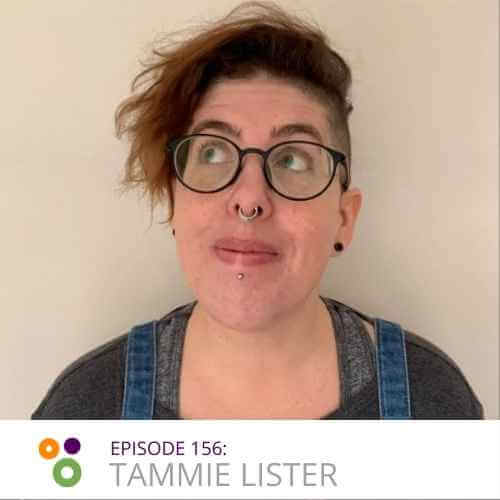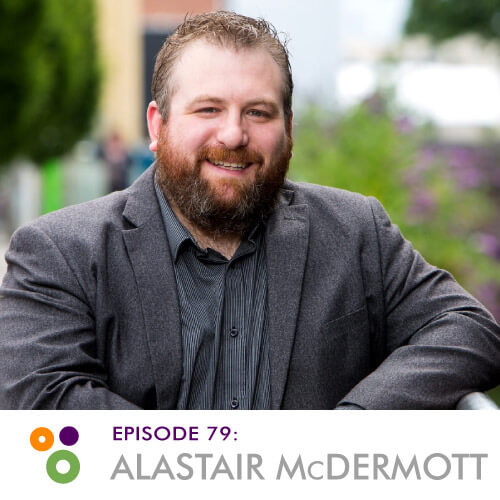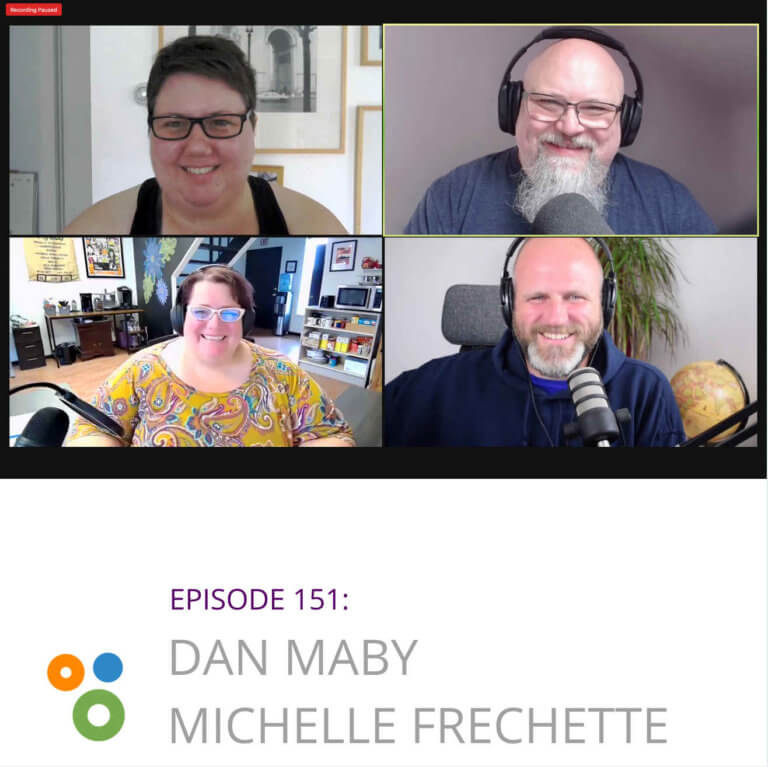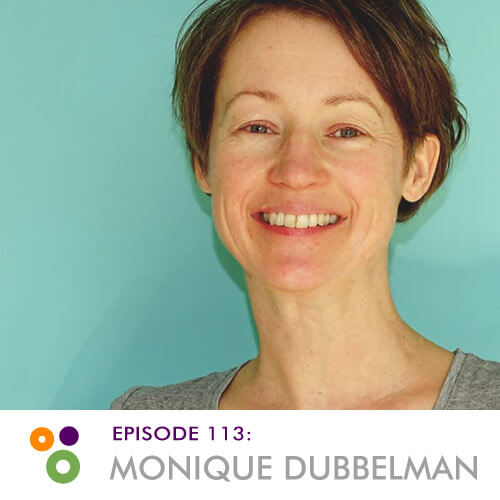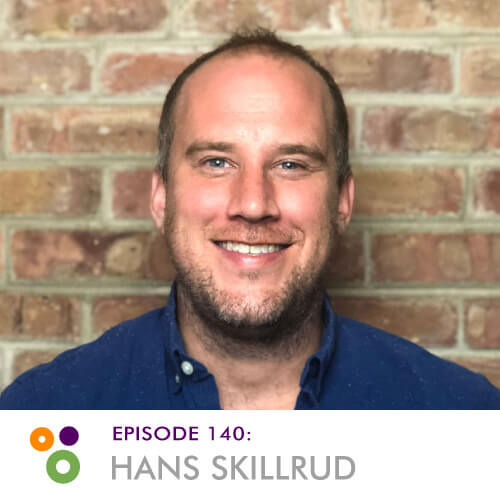Episode 7: Beth Soderberg
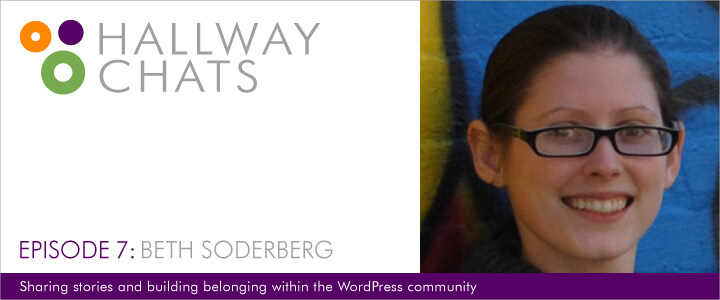
Podcast: Play in new window | Download
Subscribe: RSS
Introducing Beth Soderberg
Beth is a Washington, DC based web developer, digital strategist and activist. She builds websites and organizes around open source communities, feminist issues and the intersection of technology and empowerment.
Show Notes
Flow: The Psychology of Optimal Experience
Blacksburg Belle
Transcript:
Tara: Welcome to Hallway Chats. I’m Tara Claeys.
Liam: I’m Liam Dempsey. Today we’re joined by Beth Soderberg. Beth is a Washington DC based web developer, digital strategist and activist. She builds websites and organizes around open source communities, feminist issues and the intersection of technology and empowerment. Beth? Hello!
Beth: Hello!
Tara: Hi Beth! Welcome!
Beth: It’s great to be here.
Tara: Can you tell us a little bit about yourself beyond what Liam just described?
Beth: Sure. I build websites for a living. I run my own small consultancy, and I work primarily with nonprofits, activist groups of various kinds and random small businesses as well as some larger subcontracting type clients. So day-by-day I’m building websites. I try to bring the work that I’m doing with building websites or supporting websites back to issues that I care about, especially with organizations that really need technical support. They can trust and rely on me (which is rare to find especially for a small nonprofit working an issue that is much bigger than their bandwidth).
Liam: That’s a great introduction. Thank you Beth. If you’re making websites and you’re on our show, are you using WordPress? Tell us a little bit about how you first got into WordPress. What impressed you about it? What drew you to it?
Beth: I was dragged to WordCamp Boston 2010 which was in January. It was a very cold experience. I knew nothing about WordPress. I just knew that my mentor at work had managed to convince our boss to pay for it to get me to go.
Liam: That always makes the trip seem nicer.
Beth: Yeah. I was working at a small nonprofit that was focused on women’s rights issues. We didn’t have money for this type of thing. So the fact that there was a moment in time where it was somehow approved for me to go to something like this…it didn’t matter what it was… I was going. So I went. I had been a writer. I was in charge of an online daily newswire about feminist news. The argument for me to go to the conference was to learn to be a better digital editor and strategist. I went to the conference. I went to some of the blogging sessions. I had already been working professionally online as a media producer for several years at this point. I got bored in those sessions. I started to just go to stuff I didn’t understand. That was the first time I was like huh! It’s interesting how this works beyond what I can put into it in terms of words. From there it was sort of a slow evolution into deciding that I liked writing code more than I like writing words. Now I’m back at a place that I realize I like writing both words and code. That’s been an interesting sort of full circle.
Liam: Talk to us about that circle of the evolution of writer to developer. I started as a writer myself and did not go code. I went with more design and writing (some code but no parts developer). Maybe you could talk us through your own journey?
Beth: I was an accidental writer. Writing is by far the thing I am best at. I always resisted it because I didn’t take English in college for example. I had placed out of it because I had 5s on the two English AP exams. I’m terrible at grammar. I’m awful at grammar. I can’t tell you what an adverb is still. But I’ve always been a very prolific reader. As a teenager…where I grew up there is a small-town library where I still know the librarians…this is how much I went as a child.
Liam: That’s awesome!
Beth: Yeah. I can walk in 25 years later and say oh! It’s great to see you! How have you been? But as a young adult, the rule in my family with the library was that you could take out as many books as you carry. So I routinely was taking out a 2-foot high stack of books. I decided to read through the young adult section in alphabetical order. So I started the top left of shelf and I read. I skipped books that I thought were not interesting or too hokey because young adult novels can be that way. I read from the authors that started with A to the authors that started with Z. I finished the shelf. It was one of my life goals as a teenager.
Liam: Can I ask how long that took?
Beth: Um…a few years, 2 or 3 years.
Liam: It’s still hugely impressive. Wow!
Beth: I’m a fast reader. I love to read, and I think I just absorbed grammar by reading. For those of you who heard me talk about learning to code (which is something I talk about a lot), I’m also terrible at grammar in code. I’m horrible. I can’t describe syntax at all. I have to really focus on it in order to explain to you what’s happening. Part of why try I try to teach it is because it helps me internalize it.
Tara: Right. Do you learn through books as well? Did you learn to code by reading?
Beth: Yeah. I am 100% a book learner. I have a huge bookshelf full of all sorts of web development books, and the stuff that I am best at is the stuff that comes from the books that I’ve read like 3 or 4 times each. When I was learning CSS, I had this book. I would go out during my lunch hour and sit on a bench in the park. I just read that CSS book cover to cover several times. Eventually, it clicked. For me with learning things, it’s just exposure. Once I have exposure to something eventually there’s something in my brain that comes together. All of a sudden it makes sense. Because I’ve have internalized the syntax, I’ve never needed a person to explain the nuances of the syntax in the moment that it clicks. It might happen a few years later.
Tara: Do you have to practice it as well? I would think just reading it without doing it would be hard…for me anyway to learn. I can sit watch a video but if it doesn’t have an exercise file where I can actually go do it, makes it harder to learn. I’m fascinated by your ability to read a book a few times. That’s just awesome!
Beth: I don’t know. For me, it plays to how I learn. I have a very hard time paying attention in general in the world. When I try to do a tutorial online…I tried Code Academy a few times to learn JavaScript…ugh…I can’t. It’s not that it’s bad in general; it’s bad for me. It’s a terrible thing for me to sit there and try to pay attention long enough to the little video to get anything out of it. It’s part of why I like going to conferences so much. When I’m sitting, and someone’s talking it’s rude to not pay attention. When I’m watching the same talk on my computer, I will play games on my computer.
Tara: (laughing) So with books you can focus?
Beth: Yeah with books I can focus. It’s usually because I’m trying to do something that I’m reading a book, right? I got a job where I needed to use SaaS. I had never used SaaS before. I got a little pink book that Dan Cederholm wrote. I read the SaaS book on the metro every day for 2 or 3 weeks. Then I started the new job where I needed to use the technology. I knew enough about where things were in the book to look up what I needed in the moment.
Tara: I can see that.
Beth: I kind of needed it. It’s an as needed thing. In the beginning it was totally… I don’t know anything about any of this. I need to read all the things. Now it is I know I’m going to have to do this thing, so I study for the thing rather than the general.
Liam: That’s really interesting, and I imagine empowering that you have figured out by experience how you learn. You can put yourself in a position to learn in that way mechanically. When there is the new technical challenge coming your way all you have to do is (I am oversimplifying it) is to find the book, and you read it, and you’re on your way versus not knowing how you best learn. That’s really great. So you’ve been learning. You started as a writer, and now you’re now a developer. You started with the non-profit, and now you’re working with non-profits as clients. Talk to us about that. The job-by-job transition if you will. How did you spend time transitioning from a writer to a writer and developer (or developer and writer)?
Beth: In the beginning, when I first decided this might be a good idea it was 2010. The recession was raging. I was 23 or 24 maybe. I could not get a new job. I had been trying to get a new job for at least a year. I knew I didn’t want to go back to school because I could see the glut happening in all of the people going back to school. I was terrified that I would go and not be able to find a job later. So I knew I had to stay in my job. Originally, learning more about technology was simply a way to get a better job. That was it. I was an executive assistant. I had this writing capability, but no one really cared in the job market at the time. My academic credentials definitely were not helpful. I have a bachelor’s degree in women’s studies and another bachelor’s degree in psychology. So no one wanted to hire me. I saw technology as a way to grow my resume and get a Digital Communications job rather than the pure writing job… sort of admin assistant job that I had. I continued to fail at getting jobs for the next year or so. During that time the person who managed the website at the non-profit quit. She pulled me into the server room that we had (which was literally a closet in the dark). She said, “Beth you’ve got to take my job.” The first thing I said was I couldn’t. I don’t know what I’m doing. I don’t know how to do your job. She said, “it doesn’t matter, you can learn.” “I know they want to keep you.” So I moved to that job. In that job is where I was reading the books on the bench. I started to figure out I liked it. I originally hadn’t planned to stay in that job very long. I planned to stay in it long enough to get another job. I stayed in that job for three years. By the time I left, I had gone to school at night. I did a web design program at the Corcoran, which is no longer there (The Corcoran College of Art and Design for folks who are not local to DC). I had been starting to rebuild that organization’s websites. I had incredible imposter syndrome. I had no idea how good or bad I was anything because I had no frame of reference. I only have my mentor who was so much better at everything than I was, right? I just thought I was terrible. Then I took this class at the Corcoran. It was a bunch of development classes and web development. I remember walking in, and I was terrified. This was the litmus test of how good am I? I regularly was debating the professor about the right way to do things. The final project was to build a very basic WordPress site. It was super basic. I went to him at the end of the class and said this is going to take me 30 minutes. Can I do something else? I want to actually learn from this experience, so I built my first sort of robust child theme as the final project for that class. I look at that now, and it honestly wasn’t the best code I’ve written. But when you looked at it on the front end and the ideas behind it, it was pretty extensible. It was beyond what that class was meant to do. That was a key moment for me.
Tara: Was the class worth it that case? It sounds like you had to teach yourself and go beyond. Would you do that again?
Beth: It was worth it for two reasons. 1) I gained a lot of confidence from that experience. I realized I wasn’t as bad as I thought I was. 2) I needed that class. It was required to get the certificate. My resume up unto that point was feminism. My mentor (this is something that was incredibly valuable) we changed my title to web developer. This was a generous term for what I was at that time. She knew what my goals were. She knew what I was trying to do. So the combination of changing my title and getting that certificate is what enabled me to get a job doing web development full time. Then I worked at this PR firm. I applied to the job offer off of LinkedIn. It was an ad. I ended up on this little development team with some wonderful people (entirely Drupal developers). I thought it would make me a better developer to learn Drupal. It totally did. I’m still more of a fan of WordPress then Drupal, but I do work in both still. Again, about six months into me being there my boss pulled me aside and was like I thought you were going to require a lot of handholding. I thought you were a beginner because you presented yourself as a beginner in your interview and you’re not. I was like, well that’s good. I gained a lot of confidence in that job. I built some really cool things in that job. It was just a great learning experience. I worked with an awesome team, and I loved my teammates. The only reason I really left is because the focus of that business changed. They weren’t doing web development anymore. So the amount of work that we had as a team lessened. You could see the writing on the wall. One of my teammates left, and we didn’t replace him. I was like I’ve got to get out. There’s a certain point where I am going to leave here whether it’s of my own volition or not. So I got another web development job which further served to legitimize me. That’s where I learned SaaS. While at that job the nonprofit that I used to work for started to fall apart. They called me one night. They got hacked pretty badly. There was an animated GIF of hugging kittens when you went to that newswire that I used to write. They called at 2 o’clock on a Tuesday afternoon. I said I’m at work. I can’t you can’t help you right now. Well, what do we do? I told them who to call and what to say and what to do. They said what if we mess it up? I was like ok. I’ll be there in like 3 hours. I can’t just drop everything right now. I am at work. I don’t work for you. I haven’t worked for you for years. So I went that night and was there until 1:00 a.m. I had to hack back into all of the systems. I didn’t have any passwords word or credentials, but I knew how everything was set up. We fixed it. Then you know that’s sort of what started the trend for me coming back to where I am now. I still work for that nonprofit. I ironically sit at a desk, which is in the same location where I was when I left. I’m not there every day. They’re not my only client. It was a case where sort of the stars aligned. I have to thank those hackers for giving me the opportunity to reevaluate a little bit…what I was doing and how I was doing it. I learned from the whole experience that it was just so much more meaningful to me; to do that kind of work than the other that I was doing the stuff I was doing. Even though the other kind of stuff I was doing from a technical perspective was pretty cool and pretty visually awesome. You know it is more meaningful to me to actually build something that’s not perfect, but that is really serving a cause. It is more important than building the most beautiful perfect website. I try to build beautiful websites for a cause though.
Liam: That’s really powerful. I love that as your career developed you learned not to just write words, but code and you’re really excited by and don’t fall into the code. You learned that over the course of time you continue to self-evaluate and eventually realized or discovered or discerned it’s not just the code or the writing, but it’s the larger cause that it’s connected to. That’s really powerful. I’d like to use that setting to ask you to share your definition of success.
Beth: Oh. So, I had to write this down because this was one of the most existential questions you asked in those pre-interview notes. So I thought about it for a little bit. I think for me the ultimate feeling of being successful has a lot to do with flow. So that feeling of being really engaged in what you’re doing and just having that focus on it. Probably for me since the focus is an elusive thing usually, I think that’s part of why I find that to be such a measure. But I also think it’s a sign that you’re doing something that you’re skilled at and that you’re creating something that is really going to be of value. So in terms of a “feeling” I think that’s usually my feeling of success. In practical terms you know I’m all about Maslow’s hierarchy of needs. For those of you who are not familiar with psychology that means things like food, housing, and all of that taken care of first. Then you can build on that. Building on that usually looks like spending time with my friends and family and having more of a balance and producing things that I think are really good but also have some sort of practical meaning. I built a website once that was a really high profile website in terms of clients that I ever built. It had a forum on it. I went to the website about a year later, and I knew from day one…I tried to talk them out of the forum in the UX process. They insisted on this forum. I just knew they were never to use this website. So that was a super high-profile client. Did it really matter? No, it didn’t. No one cares. No one used it.
Tara: That’s interesting. Thank you for taking this question seriously and giving it so much thought. We appreciate that. It’s one of the things we like to talk about, the idea of success and also where you find yourself on that journey. So you’ve made yourself. I would say that you’ve taught yourself so much. I’m really inspired and impressed by what you’ve managed to do with your own brain and books and school. I also really liked how talked about your journey through imposter syndrome and how you sold yourself short at times and discovered that (as it was pointed out to you) you are farther along than you thought you were. That’s excellent. So with all that in mind and your definition of success, where do you find yourself in that…in this new point of your career?
Beth: I think that it is a mistake to view success as a destination. People who have a goal, work towards the goal and reach the goal as the definition of success. They may reach that. I feel that they usually are standing around and looking around and going ok. Now what? One of the activists that I work with who was a leader in women’s rights in the 70s and 80s (she still is now but not quite as public) says all time…I’ve really internalized it. She means it in terms of activist strategy, but I think it applies to life strategy too. You need just to monitor and adjust, right? If the goal is getting 50% representation in a legislative body… you’ve gone from 2% to 10% to 18%. Then you go down to 10%. The important part there is what happened to 18 and back to 10. What you need to adjust to get back to 18? I think that I’ve usually tried to (with my goals and what I‘m trying to do) is I always have a goal. I’m okay with changing the goal. I refuse to ignore the experience that I have in the present, in lieu of focusing on the goal. Does that make sense?
Liam: Yeah. Absolutely. Beth? As you monitor and adjust your own definition of success and your measure of success what is the single most important thing you do every day to achieve and maintain that success (that flow you talked about)?
Beth: I think the thing I try to do day-to-day that helps me be successful is to control my list of what I’m supposed to do so that I don’t lose things. One of the things that I have as an intrinsic value regarding how I relate to other people. That is to try to always do what I say that I am going to do. I’m not always successful, but when I’m not successful I feel awful. I really try not to promise things I can’t do. Because I have a life that involves multiple clients who have no idea what the others are doing (open source projects that are totally unrelated to everything else) that can be totally volatile and time-consuming. All of that… my family…everything. What I tend to do is every night before I go to bed I sort of reevaluate what needs to happen. I make a list for the next day. I don’t let myself have more than 3 to 5 huge priority tasks per day. But everything else goes on the list too. Writing an email and things as small as text this person about whatever goes on the list. It helps me be more attentive to what I actually need to do…all those little pieces that are important to get the end goal done…whatever the goal is that moment. Every Sunday night staff meeting with myself.
Tara: I like that.
Beth: So once a month I go through my work and through my goals for the month (in reference to how my goals work for the year). I make goals that are yearly into five categories. This all comes from a course I took from a woman whose name is April Bowles-Olin. She runs a business for women creative entrepreneurs called Blacksburg Belle. I’ve never met her in person, but I’ve been following her for probably five years. I have found a lot of community and inspiration from the women entrepreneur creative space. It tends to be friendlier to women then tech communities. I took this course from her years ago that was about productivity. Her basic framework for how she sets goals and reevaluates is what I still follow. I’ve adjusted it over time, but it basically dials down to the fact that I have these huge goals for the year. I break them down so that every day I’m knocking off tiny pieces of them.
Tara: I like the goal setting. When you are setting these goals and managing your time (which I know we all struggle with) what would you say is your biggest challenge in your business or your daily life?
Beth: Intrusion of emergencies.
Tara: I call them up moles…like whack a mole.
Beth: Yeah. Particularly when you’re building websites and maintaining websites also when you’re working with clients who are dealing with politics…I rebuilt a website over the weekend that is going to launch hopefully today… it’s not done yet. It needs to be done because of what’s happening in Congress. So it got bumped up the priority scale because of the larger world and the needs of my client. It totally disrupted what I was planning to do last week and this weekend. But I make decisions all the time about whether that’s ok or not.
Liam: It probably relates back to your connection to causes. It’s not just that type of work making it a sideline.
Beth: I’ve definitely had moments with clients where I looked at them and said “Look. This is just crazy!” No one other than me would be willing to do this with you right now. So yes. I will stay up all night with you, and I’ll finish this thing, but you need to recognize that this is extraordinary. It’s not normal and not how we’re going to do every project.
Tara: That’s hard once you set that precedent to have that expectation of yourself or of your clients to draw the line or make priorities. How do you how you manage that in terms of how you charge as an entrepreneur and a businessperson? Do you put a premium on projects that are rushed like that? Even when you’re working for causes, their budgets are probably limited. You must face some challenges with that.
Beth: I don’t actually. I do it, but I treat it as though you were talking to a small child, right? If you say ok. You can have the ice cream now. That means you can’t have the ice cream later. If I do that…if I have a crazy rush. I’ll say ok. You’re not going to see me for 3 weeks while I catch up on all the other things that I didn’t do while I was doing this thing.
Liam: It really goes back to managing expectations and achieving a balance.
Beth: Yeah. But I’m very clear in the moment, and I’m very aggressive. A lot of people probably wouldn’t say some of the things that I say to my clients about what the self-reflective part of what I’m doing…those moments when I say to them you know that this is absolutely unreasonable, right? They’re like I know.
Tara: But they do it anyway.
Liam: Or we can do it this one time.
Beth: I’m going to do this, but we need to understand that this is not normal. When I’m done, I’m going to go away for a little while. That’s how I manage it.
Tara: Right.
Beth: It’s more of, I don’t do that kind of work because of the money.
Tara: Sure.
Beth: If it was because of the money and I charged a rush fee every time, that just would not sit right with me. I just try to make sure that I just don’t lose my mind while I’m doing that and allow myself to make time to deal with the rest of my projects and the rest of my clients in a way that’s destructive while also supporting the crazy urgent thing that is probably ridiculous that I’m doing.
Tara: That does sound like a challenge (an internal challenge) because you are working for causes that you believe in strongly and important things are happening, and you also have to run a business. I’m sure you must have that conversation with yourself…being fair to yourself and being fair to your clients. I think that’s an important challenge to face. It sounds like you have a good handle on it.
Beth: I try. I’m not to going to lie. There are days when you look at my time tracker. You see when these things happen that suddenly I am working 15, 16, 17 hours for days in a row. Then I crash, and there are a few days when I’m working 3 or 4 hours because I’m human. You need to sleep. You need to take care of yourself. You realize that you haven’t cleaned your apartment in 2 months. It happens. But there’s also the part of me that couldn’t live with myself if in those moments I didn’t do the thing.
Liam: That’s a really valuable point. What do I do when the chips are down? Beth? I want to change gears a little bit and ask you about the systems you put in place and the way you approach things. Maybe tell us what has been the single most valuable piece of advice that you ever received (personal or professional)? How did you work that advice into your life?
Beth: Not ironically I’ve actually already said this during this podcast. When I was in college during my senior year, I managed the tour guide program (the student admissions program) for university admissions. I had this team of 16 student leaders who were volunteers. It was a hard balance to strike because I was paid and they were not. It is always an organizing problem (that organizers in any service whether it’s political or not) organizers face this problem all the time. I remember packing up a good friend of mine. We were packing up our office at the very end of the year. We had graduated. We were both working there for a little bit before we started our real jobs. Then we were all done. I remember carrying boxes with him in the stairwell. It’s one of those moments in your life where you’re like I know exactly where I was. He looked at me. He said, “you know what I liked about working for you?” “You always do what you say you’re going to do.” I was like…I guess I do. I try to. That’s really important to me. He verbalized at this moment that was so critical. I was just about to start my first job. I had just finished this huge thing in terms of being done with college. It was the right moment to say that to me. The other best piece of advice that I ever received is actually just very practical. When you meet somebody, and they gave you their business card, later write everything you remember about them on the back. I do that all the time. When I go to super big conferences and meet new people (it doesn’t matter whether I have a business card or not), I have notes from like variance conferences about who people were. How I met them and their kid goes to college here and just random stuff.
Tara: That’s a great idea.
Beth: Later, when I see that person again I’ve internalized that. Some of the people (if you look at older notebooks) there are people I had dinner with in 2012. I wrote five lines about them in my notebook. They are now people that are really truly very good friends.
Tara: That’s great. Thank you for that.
Beth: That’s a more practical one, but it’s awesome.
Liam: I love them both! Beth? We are running out of time here. Before we let you go can you let people know where we can find you online?
Beth: Sure you can go to my website which is BethSouderberg.com. It currently still does not reflect accurately what I do, but there have been higher priorities. You can also find me on Twitter @bethsoderberg. I’m pretty much there everywhere else. The other Beth Soderberg are not a big fan of me. The only place I don’t have my full name is Instagram. A mom in the Midwest got to it first.
Liam: Beth? Thanks so much for joining us today. It’s been an absolute pleasure. I’ve enjoyed the conversation. Thank you.
Tara: Thanks, Beth.
Beth: Thanks for having me!
